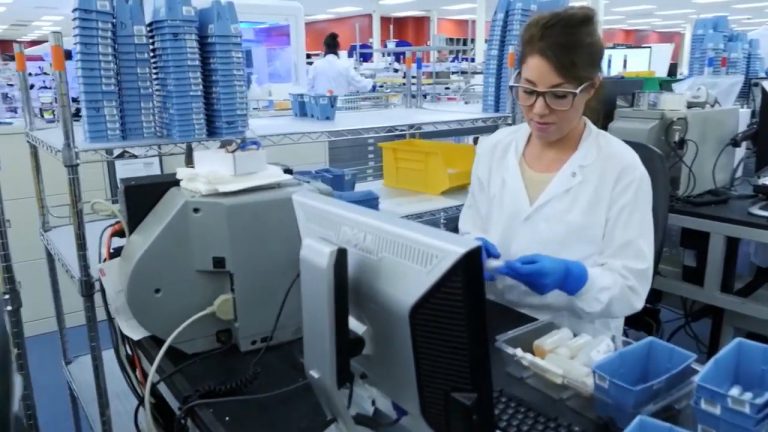

The NIH’s All of Us Research Program has chosen the HudsonAlpha Institute for Biotechnology to assess the use of DNA sequencing technologies for diagnosis and treatment of common and rare diseases, under a $7 million project to be funded by the agency’s National Center for Advancing Translational Sciences (NCATS).
HudsonAlpha will use long-read whole genome sequencing technologies to generate genetic data on about 6,000 samples from participants of different backgrounds.
All of Us is designed to glean health and wellness data from whole genome sequences of 1 million or more Americans. When the extra data from HudsonAlpha is combined with that of the planned 1 million participants, researchers will have the largest collection of genomic structural variation data and clinical data ever produced, according to the NIH.
“Through this partnership with NCATS, we’ll be able to offer approved researchers an even greater depth of genetic information than originally planned, making the resource even more valuable for them and the diverse communities we seek to help,” All of Us director Eric Dishman said in a statement.
During its first year, All of Us enrolled 175,000 participants, of which approximately 80% are from groups that have been traditionally underrepresented in biomedical research.
By using long read technologies, HudsonAlpha reasons, it will expose genetic variations that may otherwise go undetected—as well as allow researchers to better determine the value of long-read sequencing, and its strengths and limitations in exploring more elusive parts of the genome.
“Because long-read sequencing can reveal genetic changes associated with rare diseases, this project is an opportunity to assess and potentially refine the technology for advancing research across the many diseases for which there is no treatment,” said Christopher P. Austin, M.D., NCATS director. “This project illustrates the power of data and technology to accelerate the translation of knowledge into improved health.”
HudsonAlpha’s project team will be led by Shawn Levy, Ph.D., a faculty investigator and the founding director of the Institute’s Genomic Services Laboratory (GSL). In addition to experience in large-scale sequencing projects, Levy’s work has specialized in genetic studies on inherited disorders as well as complex conditions that include autism, diabetes, cancer, schizophrenia, degenerative neurological disease and amyotrophic lateral sclerosis (ALS).
“Contributing long-read sequencing data to reveal additional structural variants will enable the scientific community to study human diversity on a tremendous scale.,” Levy stated. “Appreciating the impacts of all types of genetic variation will further unravel the genetic, environmental and behavioral influences of health.”











